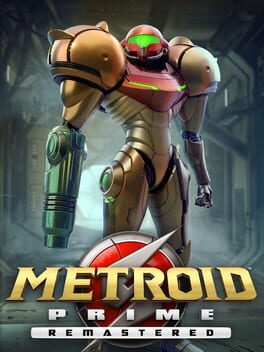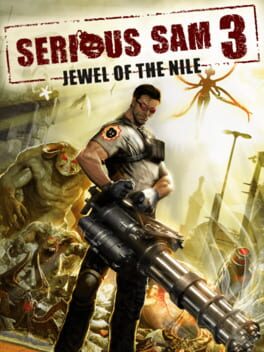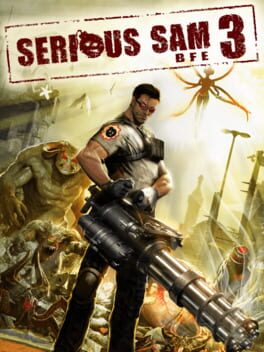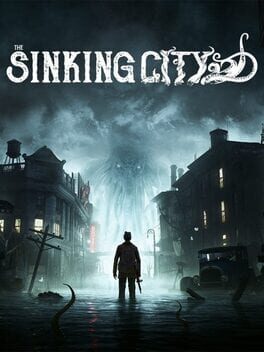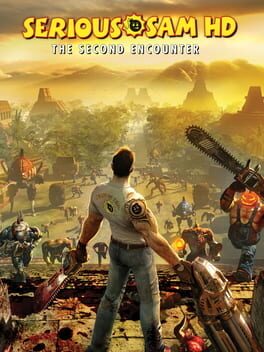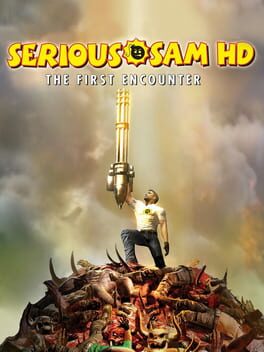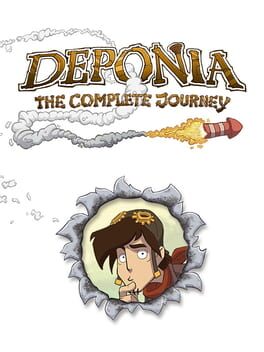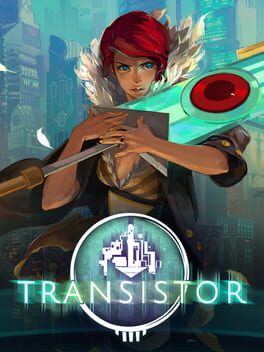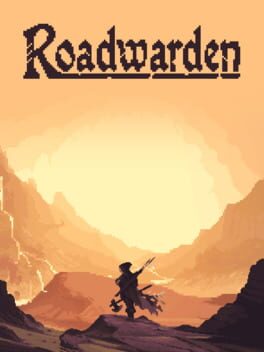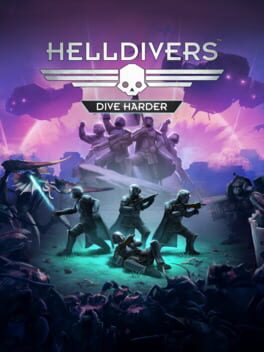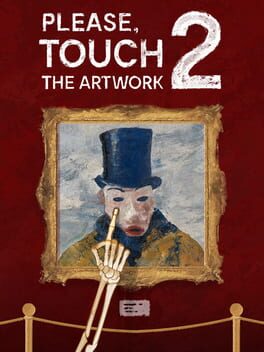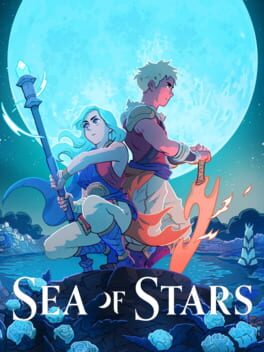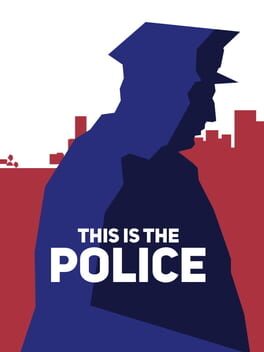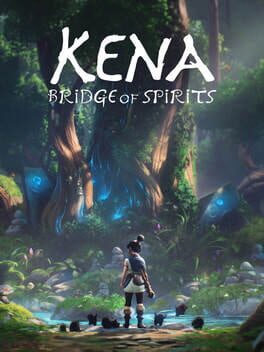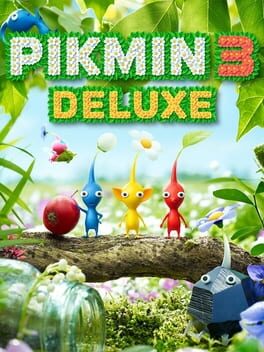Dirk_McThermot
I've been a Metroid fan since childhood and I'd known Prime 1 was consistently ranked as the best or second best of the franchise, alternating with Super Metroid. Since I never had a GameCube, I relished the opportunity to finally get to play this. It's obviously good - it wouldn't have been remastered if it wasn't - but I have to admit it left me disappointed in several aspects that I wasn't expecting.
For context, the last Metroidvania I played before this was Metroid Dread, and I loved it. It felt like a refreshingly modern take on the classic 2D style with excellent boss fights and most of the level backtracking only coming into play with finding optional bonuses and secrets. In stark contrast, Prime is built entirely on the concept of backtracking. The core goal of finding the 12 chozo artifacts is married to the design philosophy of the player coming across something gated behind a lock that can only be unlocked with an ability that will be gained later. As a result, you're destined to have to retread the exact same rooms, obstacles, and enemies dozens of times before finally getting what you're looking for. I know the whole series is built on that design philosophy, but this game pushes it to the extreme.
My other major complaint is that the enemy respawn system is gratuitous, and this point is another reason why the lengthy amount of backtracking got annoying. You'll enter a room, kill all the enemies in it, move to the next room, realize you took the wrong exit after a few moments, return to the prior room, and all the enemies will have already respawned. This got so tiresome that I started simply running through rooms ignoring enemies in the later parts of my playthrough. Regarding bosses, they're okay for the additional challenge they present, but on Normal difficulty they feel like they have way too much HP. Fights went on for so long that I grew bored before they ended.
I'm still glad I got to play this piece of gaming history, especially as a die-hard Metroid fan, but this is my least favorite of the ones I've played. A good game that may have been a masterpiece when it first came out, but by the newer standards both of its own series and of others, it's still somewhat dated.
For context, the last Metroidvania I played before this was Metroid Dread, and I loved it. It felt like a refreshingly modern take on the classic 2D style with excellent boss fights and most of the level backtracking only coming into play with finding optional bonuses and secrets. In stark contrast, Prime is built entirely on the concept of backtracking. The core goal of finding the 12 chozo artifacts is married to the design philosophy of the player coming across something gated behind a lock that can only be unlocked with an ability that will be gained later. As a result, you're destined to have to retread the exact same rooms, obstacles, and enemies dozens of times before finally getting what you're looking for. I know the whole series is built on that design philosophy, but this game pushes it to the extreme.
My other major complaint is that the enemy respawn system is gratuitous, and this point is another reason why the lengthy amount of backtracking got annoying. You'll enter a room, kill all the enemies in it, move to the next room, realize you took the wrong exit after a few moments, return to the prior room, and all the enemies will have already respawned. This got so tiresome that I started simply running through rooms ignoring enemies in the later parts of my playthrough. Regarding bosses, they're okay for the additional challenge they present, but on Normal difficulty they feel like they have way too much HP. Fights went on for so long that I grew bored before they ended.
I'm still glad I got to play this piece of gaming history, especially as a die-hard Metroid fan, but this is my least favorite of the ones I've played. A good game that may have been a masterpiece when it first came out, but by the newer standards both of its own series and of others, it's still somewhat dated.
Croteam experiments with the level design on this one quite a lot, and it usually doesn't pay off. I played the first 2 levels on Normal and that difficulty is still too hard for me, yet Easy is too easy (which is an issue with the other games in this series that I've played). The approach taken by this DLC seems to be placing more of a focus on fewer hordes of enemies and more heavy enemies that fire at you from a distance, encouraging the use of the sniper rifle much more. The fact of the matter is that staying at range and chipping away at enemies isn't nearly as fun as trying to back away from a swarm and cleaning them up with a big arsenal of weapons.
2011
The level and encounter design got some SERIOUS upgrades this time! The visual enhancements are also a welcome change, along with fewer outdated game design tropes (though a few are still present).
BFE maintains the series' sense of identity and core gameplay with its fast-paced encounters, but it does a far better job and pacing these encounters between each other. For example, the game sometimes presents subterranean sections where you're forced to move slower and fight jumpy enemies in the dark, relying only on your flashlight to see them. It seems unusual in theory but I think it fits right in.
Much like the First and Second Encounters, it culminates in a gauntlet level leading into its final boss. And I'm happy to say that both the gauntlet and the boss are significantly better than those in the previous games. The boss isn't anything too special, but it has easily the best sense of scale and unique mechanics which are required to beat it.
It's safe to say that, despite numerous flaws, I am now a serious fan of Serious Sam.
BFE maintains the series' sense of identity and core gameplay with its fast-paced encounters, but it does a far better job and pacing these encounters between each other. For example, the game sometimes presents subterranean sections where you're forced to move slower and fight jumpy enemies in the dark, relying only on your flashlight to see them. It seems unusual in theory but I think it fits right in.
Much like the First and Second Encounters, it culminates in a gauntlet level leading into its final boss. And I'm happy to say that both the gauntlet and the boss are significantly better than those in the previous games. The boss isn't anything too special, but it has easily the best sense of scale and unique mechanics which are required to beat it.
It's safe to say that, despite numerous flaws, I am now a serious fan of Serious Sam.
2019
I liked Sherlock Holmes: Crimes and Punishments and was intrigued by the premise of this game. But it feels horrible to control. Sherlock Holmes was as well, but it was far more tolerable in that game where combat didn’t exist and the levels were much smaller.
Also, I was very disappointed to see that this one has an open world setting. Really not feeling this style of game anymore, with a few exceptions.
Also, I was very disappointed to see that this one has an open world setting. Really not feeling this style of game anymore, with a few exceptions.
In several ways, this one is superior to the First Encounter. It has less troll-inspired design choices, and generally better combat encounter design. The one exception is the final boss. It's not as badly designed as the final boss of the First Encounter, but it's way too easy for some reason, and this makes it more forgettable.
The level and map design is noticeably worse. Every level is a series of a wide open area with a smaller area on either side. You have to clear those side areas, collect a key item from each, then return to the central area to progress. The game does this so many times that one of the log entries makes a self-aware reference to it with "You should know how this works by now!"
It's not life ruining but it's pretty frustrating when the core gameplay is still as satisfying as it is. I found myself continuing to fall into a flow state many times. Still, I can't really justify a higher rating than this.
The level and map design is noticeably worse. Every level is a series of a wide open area with a smaller area on either side. You have to clear those side areas, collect a key item from each, then return to the central area to progress. The game does this so many times that one of the log entries makes a self-aware reference to it with "You should know how this works by now!"
It's not life ruining but it's pretty frustrating when the core gameplay is still as satisfying as it is. I found myself continuing to fall into a flow state many times. Still, I can't really justify a higher rating than this.
This may be the worst game that I enjoyed playing and would still recommend. But only to fans of boomer shooters. There's a lot of bullshit that many FPS gamers (rightfully) shun these days. The whole game is essentially this:
1. You enter a large, empty space.
2. Dozens of enemies spawn in front of you, and another dozen spawns behind you.
3. You kill them all.
4. You approach the key item or door.
5. Steps 2-4 repeat (maybe more than once).
If you play this, make sure to start on Easy since that's what the devs intended as the "Normal" difficulty (even though there is a difficulty called Normal; baffling decision there, I know).
1. You enter a large, empty space.
2. Dozens of enemies spawn in front of you, and another dozen spawns behind you.
3. You kill them all.
4. You approach the key item or door.
5. Steps 2-4 repeat (maybe more than once).
If you play this, make sure to start on Easy since that's what the devs intended as the "Normal" difficulty (even though there is a difficulty called Normal; baffling decision there, I know).
2014
I don’t really like it when games utilize a “pause” mechanic in the middle of combat. It seems very crucial to use at the right moments in this game. And death is quite punishing, with entire abilities being temporarily disabled each time. I really loved the presentation though! I’m going to shelve this one for now and maybe return to it once I’ve got the right mindset.
2022
I really wanted to like this game. It seemed like it would be right up my alley. But after getting about 3 hours in, it started to feel like it was nothing but an endless interlinked series of fetch quests, none of which I could do because I was too broke and too low on stats. I looked up some advice for beginners and this was only confirmed. “Try going to X, get a Y, do that for a few in-game days, and hopefully you don’t get ambushed on the road, good luck!” Either that or, “Just try to do a quest that you know you can do right now, and see where it leads you.” Another 3 hours later, I’ve been running around the whole map for days, my in-game time limit is halfway up, and I’m no closer to even being able to START most of the quests.
All this is to say, I can see why people love this game so much, but it did everything in its power to bore and frustrate me. I did appreciate some of its aspects though, such as how merchants will often outright refuse to buy anything from you if they don't need any of it. Makes the world feel more believable.
All this is to say, I can see why people love this game so much, but it did everything in its power to bore and frustrate me. I did appreciate some of its aspects though, such as how merchants will often outright refuse to buy anything from you if they don't need any of it. Makes the world feel more believable.
2023
I really enjoyed this game for the most part, but I will say that I was ready to be done with it at around the 30 hour mark. I went out of my way to get the true ending, which requires completing one of the collect-a-thon style quests and this took way longer than I would have liked. "Get 60 rainbow conches" doesn't sound that bad on paper, but you'll probably need to do a lot of backtracking to find them all, and god help you if you don't use a walkthrough.
Generally speaking, the combat system isn't the most complex thing in the world, but it's just satisfying enough to determine which party member should take the next turn, what they should do, who they should target, and so on. Additionally, I played with the Tactician's Mettle relic enabled (the game's equivalent of a hard mode). This made combat much more interesting than I'm sure it would have been otherwise, although I still didn't find it to be particularly challenging. The only times I ever lost a fight and had to reload from a save point were when I forgot to top off my party's health after a previous fight. My biggest criticism of the combat is that once you've figured it out, there's basically nothing new to be challenged by. Boss fights become more like slogs with ensured outcomes rather than tense, imposing challenges. It suffers from the classic problem of games with turn-based combat as a puzzle, meaning that the combat can be "solved."
The last major criticism I have is one that's been repeated many times, and it's regarding the game's story. It's nothing offensive, but it's absolutely nothing special either. It essentially boils down to: "We have to go to A place to get B thing, so that we can then go to C place and get D thing, so that we can then go to E place..." and this is pretty much the entire game. There's a great piece of writing advice that suggests using "So Then" to bridge different parts of a plot together, instead of "And Then." Sea of Stars feels like an "And Then" story in disguise as a "So Then."
Despite all of the above, as I said, I really enjoyed the game for the most part. The art style, music, animations, character designs, and cutesy dialogue really carried it for me. And it does genuinely feel like I went on a huge, epic journey with these characters. I don't feel sad that it's over, but I'm still glad to have been part of it. This game reminds me of something I would have played to death as a child, and it makes me happy to imagine other children (and adults) out there who will consider Sea of Stars to be their favorite game for many years to come.
Generally speaking, the combat system isn't the most complex thing in the world, but it's just satisfying enough to determine which party member should take the next turn, what they should do, who they should target, and so on. Additionally, I played with the Tactician's Mettle relic enabled (the game's equivalent of a hard mode). This made combat much more interesting than I'm sure it would have been otherwise, although I still didn't find it to be particularly challenging. The only times I ever lost a fight and had to reload from a save point were when I forgot to top off my party's health after a previous fight. My biggest criticism of the combat is that once you've figured it out, there's basically nothing new to be challenged by. Boss fights become more like slogs with ensured outcomes rather than tense, imposing challenges. It suffers from the classic problem of games with turn-based combat as a puzzle, meaning that the combat can be "solved."
The last major criticism I have is one that's been repeated many times, and it's regarding the game's story. It's nothing offensive, but it's absolutely nothing special either. It essentially boils down to: "We have to go to A place to get B thing, so that we can then go to C place and get D thing, so that we can then go to E place..." and this is pretty much the entire game. There's a great piece of writing advice that suggests using "So Then" to bridge different parts of a plot together, instead of "And Then." Sea of Stars feels like an "And Then" story in disguise as a "So Then."
Despite all of the above, as I said, I really enjoyed the game for the most part. The art style, music, animations, character designs, and cutesy dialogue really carried it for me. And it does genuinely feel like I went on a huge, epic journey with these characters. I don't feel sad that it's over, but I'm still glad to have been part of it. This game reminds me of something I would have played to death as a child, and it makes me happy to imagine other children (and adults) out there who will consider Sea of Stars to be their favorite game for many years to come.
2016
Kena is an enjoyable experience with great music, a fantastic art style, and simple yet satisfying combat. However, it's held back from greatness due to being a bit too much of a collect-a-thon with tons of redundant activities for my taste. I also dislike some of the voice acting performances, including that of Kena herself. It was often saccharine and unnatural.
Still, the rot spirits are cute little dibbies.
Still, the rot spirits are cute little dibbies.
2020
